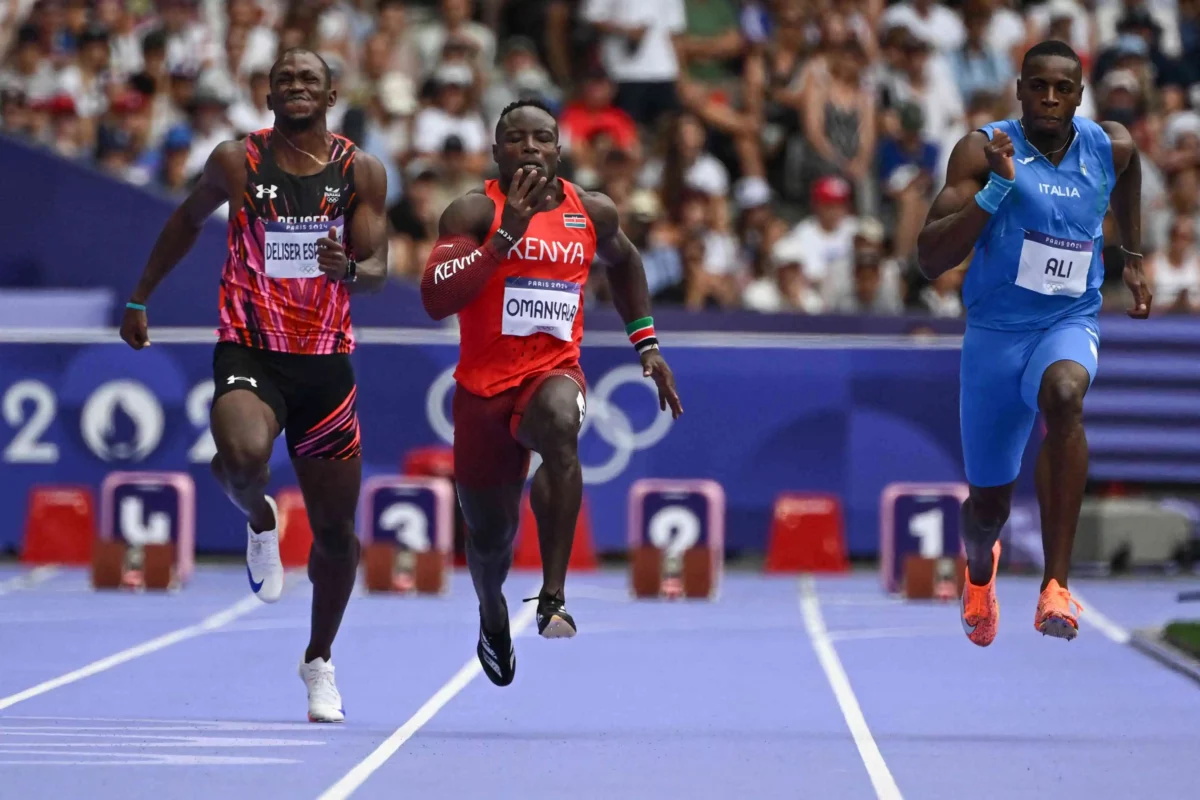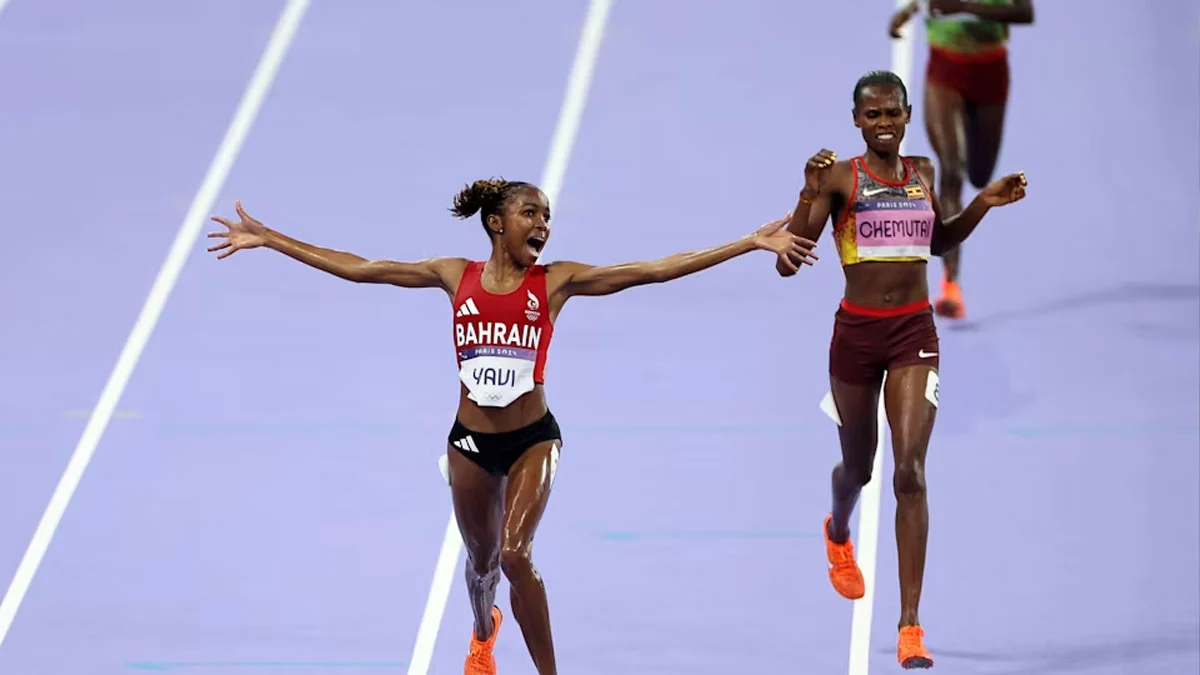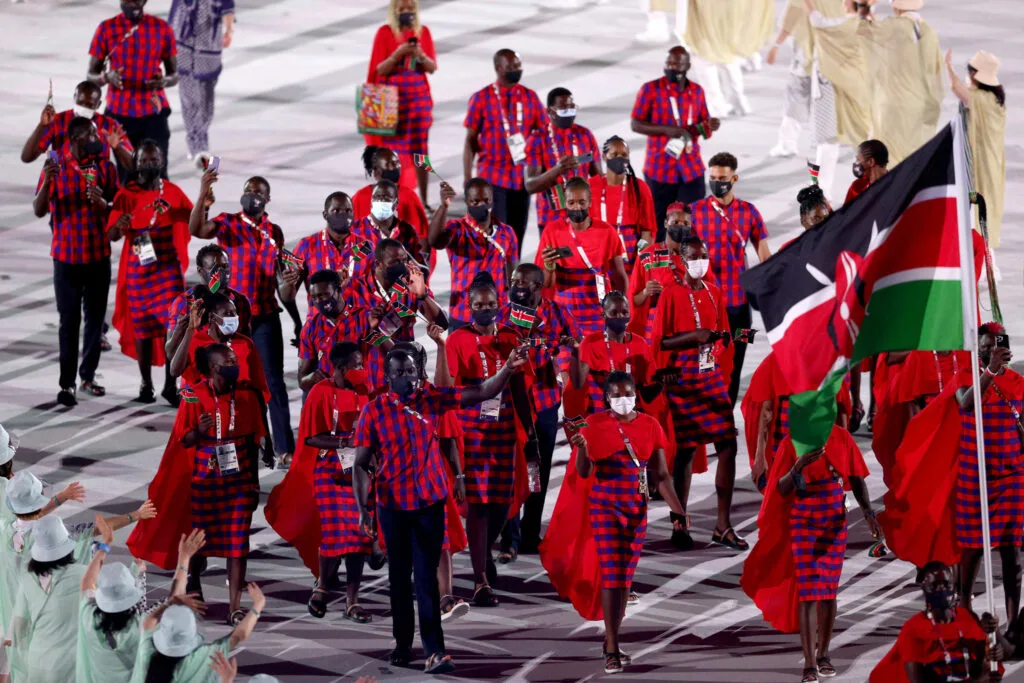Kenya’s athletics performance at the Paris Olympics has been a shadow of our glorious past. Even with Omanyala’s commendable performance in track, representing Kenya at the Olympics for the first time in the sprint after Seraphino Antao in the 1962 Commonwealth Games, there is still much to desire from the hay days of Rudisha and Kipchoge.
However, the ladies have done us proud thus far. Beatrice Chebet clinched gold in the Women’s 5000 meters, while Faith Kipyegon secured the silver in the same event, showcasing Kenya’s dominance in long-distance running. Additionally, Faith Cherotich earned a bronze medal in the Women’s 3000 meters Steeplechase, and Mary Moraa added to the medal tally with a bronze in the Women’s 800 meters. Questions need to be raised, what informs the deplorable state of our athletics performance, lately?

“An undisputable fact it is, that our population is teeming with talent,” I remember my friend commenting as we watched Omanyala’s race, the other evening. “However, our system is unstructured. Unless fixed, we will slowly fade into oblivion like our football image, internationally.”
“How so?” I implored him, as the realization settled.
“Do you remember our days in secondary school? How rich was the talent and the storm that interschool games kicked? How do you think all that fire fizzles out, we are hardly spoken of while mentioning great footballing countries in Africa? Our rugby is on its deathbed even though it is still kicking. Trust me on this, unless something is done, those shall be the last kicks of a dying horse.”
Some of our Olympic team landed at JKIA and there was not even the Ministry bus to pick them up… They had to opt for Bolt and Uber… This country stinks to the high heavens! pic.twitter.com/njcBhu2PsY
— Juma G 🇰🇪 (@jumaf3) August 7, 2024
And then something happened, blowing the entire truth out of the water, and baring its backside naked for all and sundry. Our athletes landed back in the country last evening to no reception from the relevant authorities. Not even a ministry bus to pick them. Left to wallow in a stew of frustration, they had to rely on taxis to get to their destinations.
As I watched a video posted on social media of our nation’s finest stranded at the airport, it couldn’t help but bring back the memories of when Eliud Kipchoge in 2021 after winning the Tokyo Marathon in October making our country proud, was left stranded at the airport when there was no one there to receive him apart from his driver.
During the 2016 Rio Olympics, numerous athletes faced logistical issues and poor management. The mismanagement of travel and accommodation arrangements led to significant distress for the athletes. Similar challenges arose in the 2017 World Championships held in London, where late visa applications and poor travel arrangements resulted in some athletes being stranded or arriving late.
The 2018 Commonwealth Games in Gold Coast, Australia, saw a repetition of these issues, with athletes experiencing logistical problems such as delayed allowances and inadequate travel arrangements, leading to them being stranded and facing financial difficulties. During the 2021 Tokyo Olympics, Kenyan athletes again faced challenges related to travel and accommodation, with delays in allowances and logistical mismanagement by the Ministry of Sports causing significant inconvenience.
Cases of Kenyan athletes opting to offer their skills in service to other countries with structured management systems are common. Mostly to Middle Eastern countries, and in even in some instances to African countries like Uganda, and ending up beating those competing under our flag. Most notable is Winfred Yavi, the winner of the Olympics 3000m steeplechase.
Moreover, Mike Okoth is the most capped player in the history of the Kenyan national football team, Harambee Stars, and remains a legendary figure for Gor Mahia, a prominent Kenyan football club. Despite his deep-rooted connections to Kenyan football, Okoth made the decision to take his son, Divock Origi, to Europe to give him a better chance at a topflight football career.
This decision paid off, as Origi went on to achieve significant success, including winning a UEFA Champions League medal with Liverpool and representing Belgium at the highest level in international football. This case exemplifies the balance between patriotism and the pursuit of greater opportunities in professional sports.

Public sentiment has been rife with dissent towards the ministry’s mishandling of its core responsibilities. One X user, @WaLoganville, said, “It reminds me of Dennis Oliech’s patriotic decision to play for Kenya instead of a country that I cannot remember. Looking at Oliech today, I am sure he regrets it.” Commenting on Yavi’s decision to switch nationalities.
















